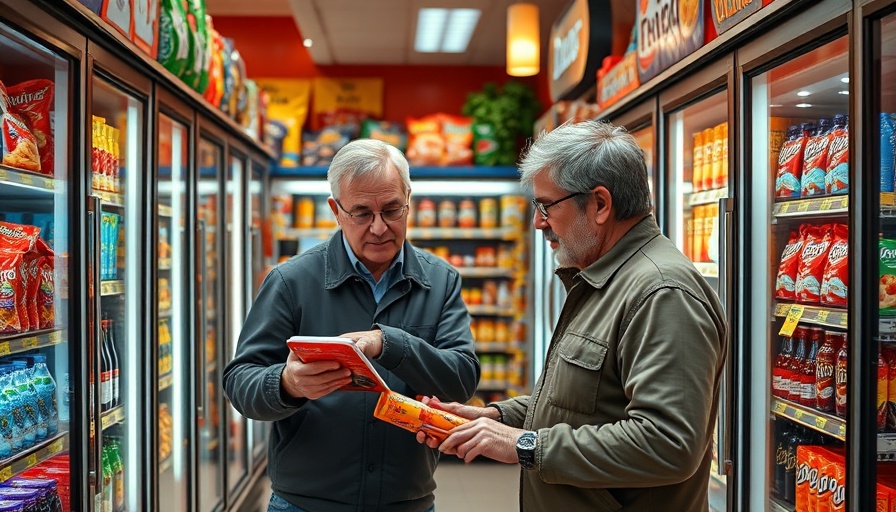
Rising Costs: Unpacking the Impact of Inflation
In a stark reflection of today’s economy, Kelly's Fuel Mart in Melvindale has been nudged into a corner where price hikes are inevitable. Amid rising gas prices, the convenience store is feeling the economic squeeze in ways that extend far beyond the fuel pumps. Imad Khalil, owner of the gas station, admits a 15% drop in sales this year alone, a troubling statistic that highlights the stark losses for small businesses nationwide.
The Complexity of Price Increases
Delving into specific inflationary pressures, simple products like a bag of Cheez-Its have spiraled from $1.49 to $2.29 in a short time. Khalil isn't merely inflating prices for profitability; his operation is shaped by rising supply costs driven by both inflation and larger economic factors. The price of transportation has risen significantly, and this adds layers of complexity, forcing small retailers to adapt rapidly.
Labor and Operational Challenges
Beyond product costs, labor expenses have surged. Khalil has had to boost payroll expenditure by about $35,000 in the last year—a necessary move to retain employees and ensure operational efficacy. This labor cost increase is emblematic of the wider trend observed across various industries where businesses are grappling with rising wage demands amidst a tightening labor market.
Consumer Behavior and Cashless Transactions
Interestingly, Khalil's observations on changing consumer habits also merit attention. With around 75-80% of transactions now made via credit or debit cards, the associated fees—averaging between $9,000 to $10,000 monthly—intensify the situation. Businesses now operate within a cashless paradigm that also affects their profit margins, further complicating the financial landscape for convenience stores.
Local Insights: The Role of Convenience Stores
According to Mark Griffin, president of the Michigan Association of Convenience Stores, these shops play a crucial role in many communities, especially where grocery stores are scarce. As inflation continues to pinch budgets, consumers may increasingly rely on their local gas station convenience store, which often serves as a primary source for food and everyday items for many families.
Looking Ahead: Trends and Predictions
What does the future hold for businesses like Khalil's? If inflation persists, we can expect small retailers to face continued pressure to adjust prices, which could deter customer foot traffic. Alternatively, there may emerge trends toward promoting locally sourced products or community-based marketing to re-engage consumers who are feeling the economic strain.
Key Takeaway: Understanding the Bigger Picture
As prices climb, it's essential for consumers to understand the systemic issues at play. Khalil’s story emphasizes that inflation has far-reaching effects, not just at the fuel pumps, but across all levels of our economy. By staying informed and adaptable, both businesses and consumers can navigate these turbulent waters together.
The challenges aren't restricted to this Melvindale gas station, but are reflective of a wider economic struggle. Businesses like Kelly's Fuel Mart are not just selling gas and snacks; they are serving communities while wrestling with the complexities of inflation, consumer habits, and operational costs.
 Add Row
Add Row  Add
Add 




 Add Row
Add Row  Add
Add 

Write A Comment